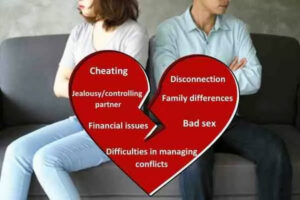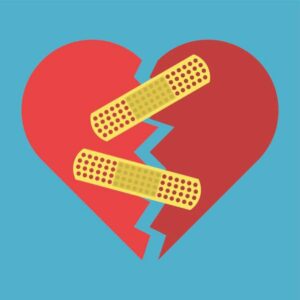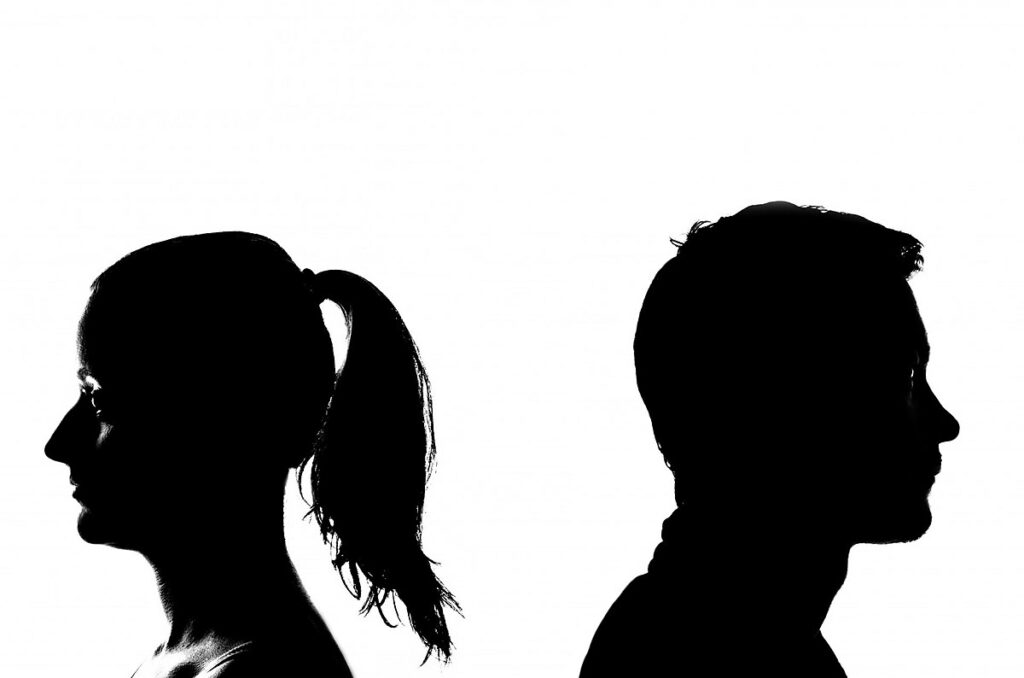No one ever said breaking up was easy, and when you’re struggling with breakup depression, it can feel impossible. If you’re feeling lost and alone after your relationship ends, know that you are not alone. Millions of people experience breakup depression every year. It’s a natural response to the loss of a loved one. But that doesn’t mean it’s easy to deal with. In this blog post, we will discuss how to cope with breakup depression and start moving on with your life!
Contents
What Is Breakup Depression?

Breakup Depression means feeling down, sad, hopeless, and demotivated after a relationship ends. It can last for weeks, months, or even years.
Some breakups are harder to process than others. While you might be able to quickly let go in some cases, others might cause you to feel a range of negative emotions, including anger, sadness, anxiety, and heartbreak.
Types Of Depression After Breakup
There are three types of depression that a person can have after a breakup.
- Reactive Depression: This is the most common type of breakup depression. It usually lasts for a few weeks or months and goes away on its own. If your symptoms last longer than a few months, you may have clinical depression.
- Chronic Depression: This type of depression is more long-lasting. It can last for years if not treated. If you have chronic depression, you may also have other mental health conditions, such as anxiety or post-traumatic stress disorder (PTSD).
- Bipolar Disorder: This mental health condition causes extreme mood swings. If you have bipolar disorder, you may experience depression after a breakup, even if the relationship was not that important to you.
So these are some types of depression that people usually face. If you are struggling please reach out to a professional for help.
Symptoms Of Breakup Depression

There are various symptoms of breakup depression. They may not all be experienced by every person, but some of the more common symptoms include:
- Feelings of loneliness and isolation
- Sleeping too much or having difficulty sleeping
- Loss of appetite or overeating
- Loss of interest in hobbies or activities that were once enjoyed
- Anxiety and worry
- Anger and irritability
- Sadness and tearfulness
- Loss of motivation
- Feelings of hopelessness
Going through a breakup is tough, and it’s only made worse when it comes as a surprise. You will likely experience several intense emotions like sadness or anger. In some cases, you might even notice physical symptoms like headaches or chest pain. But don’t worry, these usually go away after a while.
How Does Breakup Cause Depression?
There are various causes of depression breakups. They may not all be experienced by every person, but some of the more common causes include:
- Rejection: When a relationship ends, it can feel like you’ve been rejected. This can lead to feelings of loneliness, sadness, and worthlessness.
- Loss Of Identity: After being in a relationship for a while, you might start to identify yourself as part of a couple. When that relationship ends, it can be confusing and upsetting. You might not know who you are without your partner.
- Loss Of Support: Relationships offer emotional support. When a relationship ends, it can be tough to cope with the loss of that support. This can lead to feelings of sadness and loneliness.
Breakup depression is a real thing, and it’s something that should be taken seriously. There are a few things you can do to help ease the transition and get through this tough time. Just be patient and get in touch with your family and friends. With time you can manage your feelings and recover from this type of depression.
How Does It Impact Life?
 After a breakup, a person has to face several problems in his daily life.
After a breakup, a person has to face several problems in his daily life.
- It becomes difficult to concentrate on work and study.
- They may start avoiding social gatherings and meeting new people.
- All they want to do is stay in their room all day long and think about the happy moments spent with their partner.
- They have lost their purpose in life.
- The person may feel worthless and have low self-esteem.
- And think about suicide.
- They may also experience, sleep disorders, and eating disorders.
While it is typical to be sad for a while following a breakup, it is important to be mindful of your mental health and seek professional help if you find that your sadness is impacting your quality of life.
How To Cope With A Depression After Breakup?

Ending a relationship is never easy. Whether you were together for two months or 20 years, breakups can be tough to deal with. And while it’s normal to feel sad, angry, and even relieved after a breakup, some people may experience more intense emotions that can lead to depression.
- Establish physical boundaries with your ex: Just because you’re not together anymore doesn’t mean you don’t have a right to your own space and privacy. If you live together, make sure you have a bedroom or area of the house that is just for you. This will give you a place to go to relax and regroup when needed.
- Maintain healthy habits: When you’re going through a tough time, it’s easy to let your health fall by the wayside. But taking care of yourself is more important than ever. Make sure you’re eating healthy foods, exercising regularly, and getting enough sleep.
- Re-establish your self-confidence: It’s common to second-guess yourself and your decision to end the relationship. But you need to remember that you are an amazing person, worthy of love and respect.
- Spend time with friends and family: Spending time with your family can make you happier. You can share your feelings with them and this can make you more relaxed. You can also try to journal your emotions. This can be very helpful and make yourself calm.
- Take some time for yourself: It’s important to focus on taking care of yourself during this difficult time. Do things that make you happy, and remind yourself of all the reasons why you’re great. You’ll get through this tough time, and come out stronger than ever.
- Seek Professional Help: If you find that you’re struggling to cope with a breakup, don’t hesitate to reach out for help. Talk to your doctor or a mental health professional if you need additional support. With the right help, you can get through this tough time and come out stronger than ever.
It is agreeable that breakups are tough to deal with but there are always ways to get through the tough time. You just need to focus on yourself and what you are worthy of, so explore yourself as much as possible. Because this will increase your self confidence and self-esteem. And definitely, you will come out stronger than ever.
Therefore. if you’re finding it difficult to cope with a breakup, don’t hesitate to seek assistance from a professional. They can provide you guidance and healthy coping mechanisms that can help you overcome breakup depression.
Conclusion
It may be concluded that breakup depression is a real and serious thing. It can be hard to cope when a relationship ends, but there are ways to ease the pain. The end of an intimate bond often signals many different life changes. While some of these changes can be positive, like leading to personal growth, they can also be difficult, like having to readjust to living alone.
No matter what the circumstances of your breakup may be, it’s normal to feel sad, scared, or angry when a relationship ends. They might lead to uncomfortable or recurrent thoughts of sadness. It can be extremely debilitating, and it might need medical intervention.
For more tips and guidance, you can reach out to Therapy Mantra. The team of professional counselors is more than happy to help you in your journey to recovery. Contact us today to learn more about our services. You can also book an online therapy session or download our free Android or iOS app.


